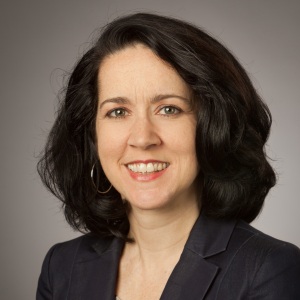Interview With Dr. Mary Schmitt of University of Texas at Austin

Dr. Mary Beth Schmitt is an assistant professor at The University of Texas at Austin. Dr. Schmitt and her team work to identify child-level, treatment-level, and classroom-level ingredients of public school therapy that affect outcomes for children with language impairment. Her work has been supported by NIDCD, ASHA, TSHA, TTUHSC, and UT Austin. Dr. Schmitt has over 32 publications and she serves as editor for EBP Briefs, a peer-reviewed publication supporting evidence-based practice for SLPs.
Note: You should consult with your doctor or speech pathologist for recommendations on treatment. The views and opinions expressed in this article are those of Dr. Schmitt and do not necessarily reflect the official policy or position of SpeechPathologyMastersPrograms.com
How did you become interested in researching language disorders?
Before getting my PhD, I worked clinically for 11 years primarily serving children with language disorders. To be honest, I fought going back to get my PhD – I loved clinical service delivery and saw that as counter to research. But more and more I realized that there was very little research available to guide my decisions, especially related to children receiving services in the public schools. I felt an ethical obligation to contribute what I could to fill that gap.
What are some of the most important things we have learned in the past couple decades about treating children with language disorders?
We have learned a lot about the disorder itself. One critical aspect that has come about through research is the relation between language and literacy – the connection between language and academics. And thankfully educational research is ahead of our profession when it comes to applied research, so there is much we can draw on from that body of research. However, we still know very little about assessment and intervention. We do know that therapy matters – children who receive therapy fare better than children who do not. What we don’t know is what aspects of therapy matter the most for children’s outcomes. My team’s preliminary findings suggest that treatment intensity, group size, children’s engagement, and inclusion practices are related to outcomes. But the field needs so much more research to understand how these aspects work towards children’s language gains.
What is behavior regulation intervention and how could it potentially help those with language and literacy issues?
Behavior regulation is an aspect of a child’s self regulation including their attention, memory and inhibition. Specifically it is the child’s ability to attend to the salient information in a particular context, remember what is said/instructed, and inhibit their dominant response in favor of the expectations in that context. From what we know, a child’s behavior regulation allows him/her to benefit from therapy. A child who has good regulation can focus on learning. A child who struggles with behavior regulation – which often describes many children with language impairment – isn’t ready to learn. The focus instead becomes their behavior.
You also edit the EBP briefs publication- what would you say are the biggest challenges to making sure professionals are using evidence based practice in their work?
One big barrier is external: accessing the research – finding articles, finding time to read them, knowing how to understand them. Another barrier is internal. Clinicians must believe that there is more to learn about assessment and treatment and that research can be informative to their practice. These are oversimplified, but important to consider.
How has your clinical background shaped you as a researcher?
It continues to inform absolutely everything I do. I ask and attempt to answer questions I needed when I was a clinician. And now that I have shifted roles, I make sure that I hear from speech-language pathologists (SLPs) on questions they have. I tell my students all the time that if my research isn’t immediately informing clinical practice, then I need to shift my focus.
How do you choose new research projects?
In a sense, they kind of find me. The data tell stories. And when we are humble and open enough to see what the data has to say, they always lead us to the next question. Every research project answers one question and then begs us to ask hundreds more as a result.
What aspect of your research are you most proud of?
I’m proud that the research published to date does in fact matter to practicing SLPs. I know this because they tell me! We have had to fight for some of our data to be published because sometimes data tells the hard truth about what doesn’t work. But time and time again I’ve had clinicians come up and thank me for saying with data what they have believed true in their practice. That is the part that keeps me motivated.
Do you have any advice for those considering a career in speech pathology?
For me, it has been a perfect fit. I love the marriage of science and art, of people and data. It never gets old and no day is the same. When I look at my career so far, it has taken me down so many paths! My advice for students entering is to follow that passion, but don’t try to plan your career. You just never know where life will take you. And then to be ready to do a lot of self-work. This career isn’t about you – it’s about serving others. And to do that well, you need to be ready to receive criticism, to not be good all the time, to constantly learn and grow. I tell my students that the longer I am in this profession, the less I know. And that at the point I *think* I know everything is the point I need to retire! But being secure enough to not have all the answers – and to be willing to partner with families to learn and grow – is challenging! I will forever be grateful for this path!
Sponsored online speech pathology programs

Online MS: Pursue SLP Certification. Study FT/PT
Speech@Emerson enables you to earn an MS online and pursue SLP certification in as few as 20 mos. Learn the same curriculum as the on-campus program. Study FT or PT.
- Prepares you to pursue certification as an SLP generalist
- In-person clinical placements at faculty-approved partner sites
- As few as 20 months to complete
AD

Want to Become an SLP? Earn an MS Online at NYU
NYU Steinhardt’s online master of science program in Communicative Sciences and Disorders prepares aspiring speech-language pathologists with a comprehensive professional education.
- Prepares students to pursue SLP licensure
- Accredited by ASHA’s Council on Academic Accreditation
- As few as six terms to complete
- Full-time and part-time plans of study
AD

Online MS in Speech-Language Pathology from Pepperdine University
Pepperdine University’s online Master of Science in Speech-Language Pathology program combines a robust, innovative curriculum rooted in Christian values with a full-time or part-time option that features online learning, on-campus intensive experiences, and comprehensive clinical field practicums to prepare skilled, compassionate students for careers as speech-language pathologists.
- Full-time (five trimesters) or part-time (eight trimesters) options available.
- No GRE scores required.
- 400+ supervised, clinical learning hours are done at schools/clinics local to students
- Three onsite experiences build a sense of camaraderie and community throughout the program
AD

